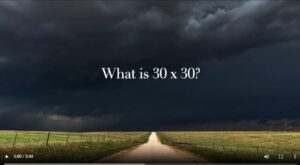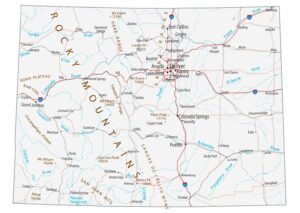RESOLUTION PROCESS AGAINST JUSTICE 40/ SMART CITIES IN COLORADO
Arthur Lee of Virginia wrote in 1775 that property is “the guardian of all other rights.” Similarly, the Supreme Court declared in 1897 that “In a free government almost all other rights would become worthless if the government possessed power over the private fortune of every citizen.”
THE COLORADO LEGISLATURE IS TRYING TO PASS SEVEN BILLS DURING THE 2024 SESSION WHICH WILL RESULT IN CHANGES TO YOUR PROPERTY RIGHTS:
Fort Collins, Boulder, Longmont and other cities along the Front Range are recognized as a “transit oriented communities”, with a transit oriented development plan. Under the transportation & housing bills working their way through the State Legislature, the housing density of the city would be required to be a minimum of 15 residential units per acre along transit corridors. Transit corridors are within ½ mile from a train or bus transit station. As you review the bills below, think about how your neighborhoods, if located within ½ mile from rail or bus transit routes would comply with these bills.
You can read the bills in their entirety below.
Bill Summaries:
HB24-1313 Bill would allow more apartments and condos to be built near rail lines and bus routes by requiring cities and municipalities to establish a housing opportunity goal and rezone those areas to encourage higher density development. A housing opportunity goal is a zoning capacity goal determined based on an average zoned housing density and the number of transit-related areas within a transit-oriented community. The bill requires a transit-oriented community to meet its housing opportunity goal by ensuring that enough areas in the transit-oriented community qualify as transit centers.
HB24-1007 Bill which would nullify the ability of local governments to limit the number of related and unrelated people who can live together in a residential dwelling, except where it may violate public health and safety concerns. Those concerns must align with accepted Nationally recognized health and safety standards.
HB24-1304 Bill would prohibit a county or municipality from enacting or enforcing minimum parking requirements for real property both within a city municipality or metropolitan planning organization. Bill would take effect starting January 1, 2025. This bill also LOWERS THE PROTECTIONS PROVIDED FOR PERSONS WITH DISABILITIES, INCLUDING THE NUMBER OF PARKING SPACES FOR PERSONS WHO ARE MOBILITY IMPAIRED, UNDER THE FEDERAL “AMERICANS WITH DISABILITIES ACT OF 1990”.
HB24-1152 Bill that establishes unique requirements for subject jurisdictions and for qualifying as an accessory dwelling unit (ADU) supportive jurisdiction.
The bill requires a subject jurisdiction to allow, subject to an administrative approval process, one accessory dwelling unit as an accessory use to a single-unit detached dwelling in any part of the subject jurisdiction where the subject jurisdiction allows single-unit detached dwellings. The bill also prohibits subject jurisdictions from enacting or enforcing certain local laws that would restrict the construction or conversion of an accessory dwelling unit.
Bill also grants the Colorado economic development commission the power to contract with the Colorado housing and finance authority for the operation of a program in which the Colorado housing and finance authority offers direct loans for the conversion of accessory dwelling units on owner-occupied land. There is also a similar Senate Bill SB24-154. This Senate Bill also prohibits subject jurisdictions from applying a restrictive design or dimension standard to an accessory dwelling unit.
HB24-1175 Bill concerning a local government’s right of first refusal or offer to purchase qualifying multifamily property for the purpose of providing long-term affordable housing or mixed-income development.
HB24-1239 Bill requires a board of county commissioners or the governing body of a municipality to adopt a building code, or amend an existing building code, to allow up to 5 stories of a multifamily residential building to be served by a single exit.
HB 24-1107 Bill would make residents liable for the local government and developer’s legal costs if the residents do not prevail in a Rule 106 appeal in court. In contrast, land developers would not be required to pay the residents legal costs if the developer loses in court. Additionally, when filing a Rule 106 appeal, the development construction could continue until the case gets to court, which could take months or even years in some situations. In other words, there would be no “Stop Work Order”, like there is now.
To comment on these bills, please write your State Senator and Representative.


